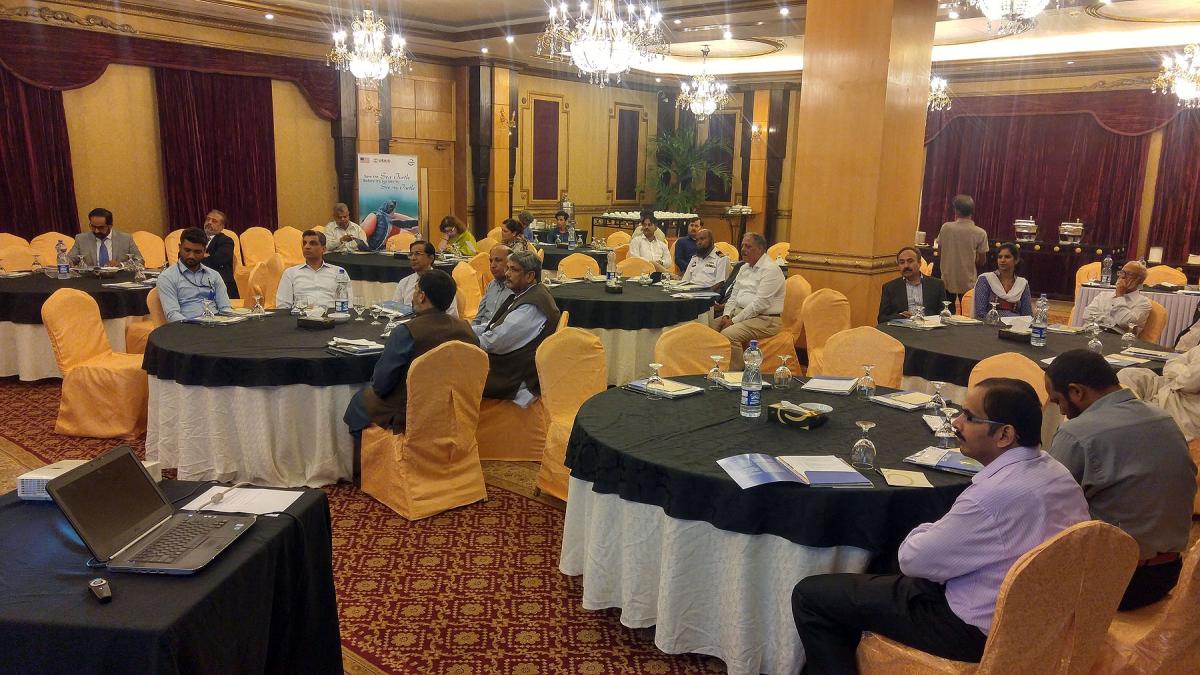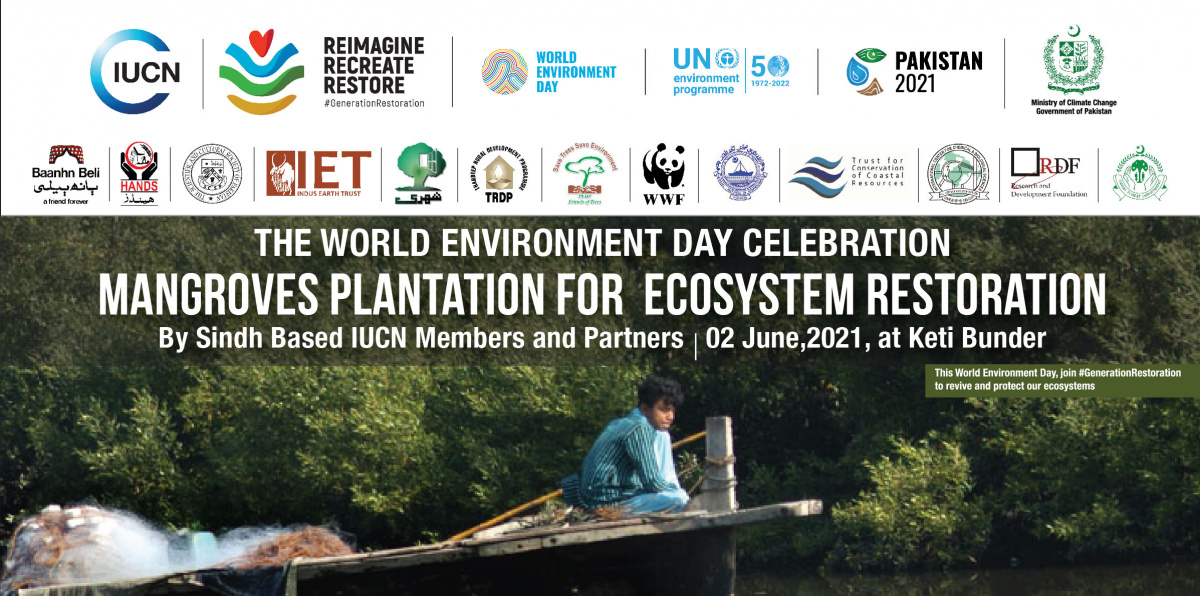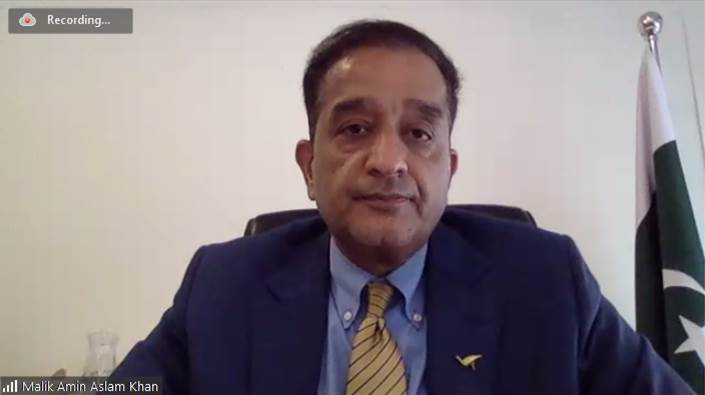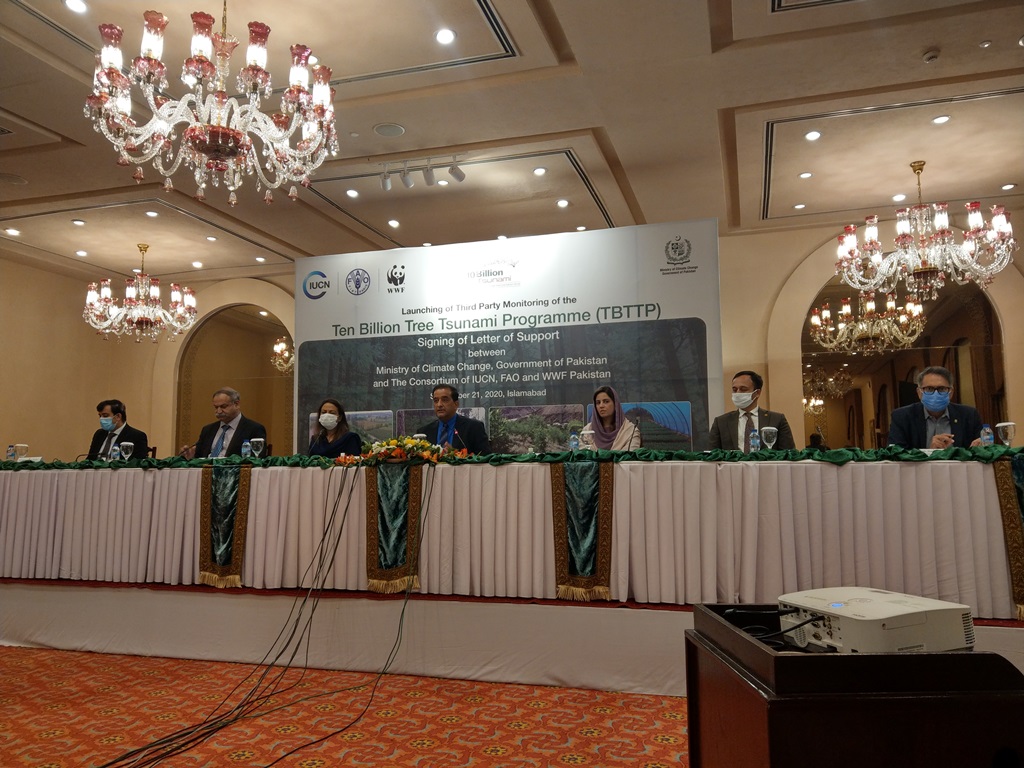IUCN and USAID to encourage education, capacity building and livelihood development of coastal communities in Pakistan
On November 10, IUCN organised a project launch ceremony in Karachi, Pakistan for a USAID-funded project titled "Integrated Approach to Education, Capacity Building and Livelihood Development of Coastal Communities in Sindh and in Balochistan Provinces".

Attendees at the IUCN-USAID project launch ceremony
Photo: © IUCN Pakistan
The ceremony was attended by representatives from the Sindh government, IUCN members, academia, conservation experts and the media.
The project will focus on raising awareness among coastal communities about the importance of nature conservation through environmental education sessions in schools and capacity-building sessions for the local residents. A study on marine turtle conservation is also an integral part of the project, as is the promotion of the participation of locals in mangrove-based eco-tourism.
In his remarks, Chief Guest Mr. Manzoor Ali Sheikh, Secretary, Sindh Forest and Wildlife Department, said, "I commend both IUCN for their effort, and USAID for their generosity and support, towards making this project possible. This reflects USAID’s continued commitment towards improving the environmental situation in Pakistan." He went on to stress that in addition to other activities, the project will encourage mangrove-based eco-tourism by actively involving local communities and assisting them in diversifying their livelihoods. He also urged project implementors to gather more data on fish-catch and freshwater issues along the coast.
In his welcome remarks, Mr. Mahmood Akhtar Cheema, IUCN Country Representative, addressed some of the pressing issues facing coastal areas and communities, such as over-fishing, trade in illegal wildlife, and a lack of basic understanding of the value of natural resources. "I am optimistic that this project will contribute to addressing these issues. By promoting integrated coastal management and targeting the factors that contribute to livelihood vulnerability, this project will ensure that the natural diversity and ecological sustainability of Pakistan’s coasts are maintained," said Mr. Cheema. He also voiced his appreciation of the role key member organisations were playing in helping the project team and thanked the American people for their generous support through USAID towards the development of coastal communities in Pakistan's provinces. Furthermore, he explained that this project will also have a study on turtles and their conservation and mentioned that IUCN has been actively engaged in the conservation and raising awareness of sea turtles along Pakistan’s coasts, and has rescued them on numerous occasions.
Syed Ghulam Qadir Shah, Mangroves for the Future (MFF) National Coordinator, IUCN Pakistan presented an overview of IUCN’s coastal initiatives under IUCN’s MFF Programme and described some of the ongoing challenges coastal communities face. He also mentioned the IUCN-Pakistan Navy joint mangroves plantation initiative as well as the role of the National Coordinating Body of the MFF, which provides a unique platform for stakeholder discussions on matters pertaining to the coasts.
Mr. Danish Rashdi, Programme Coordinator at IUCN and Project Manager, gave an overview of the project, its goals and objectives and key activities that would be undertaken during the one-year period.
Others who spoke during the occasion were Mr. Shamsul Haq Memon, former Secretary, Sindh Forest and Wildlife Department, and Mr. Wasif Saeed, Chief Economist, Planning and Development Department, FATA.
Mangroves for the Future (MFF) is a partnership-based regional initiative which promotes investment in coastal ecosystem conservation for sustainable development. MFF focuses on the role that healthy, well-managed coastal ecosystems play in building the resilience of ecosystem-dependent coastal communities in Bangladesh, Cambodia, India, Indonesia, Maldives, Myanmar, Pakistan, Seychelles, Sri Lanka, Thailand and Viet Nam. The initiative uses mangroves as a flagship ecosystem, but MFF is inclusive of all types of coastal ecosystem, such as coral reefs, estuaries, lagoons, sandy beaches, sea grasses and wetlands. MFF is co-chaired by IUCN and UNDP, and is funded by Danida, Norad, and Sida and the Royal Norwegian Embassy in Thailand.



